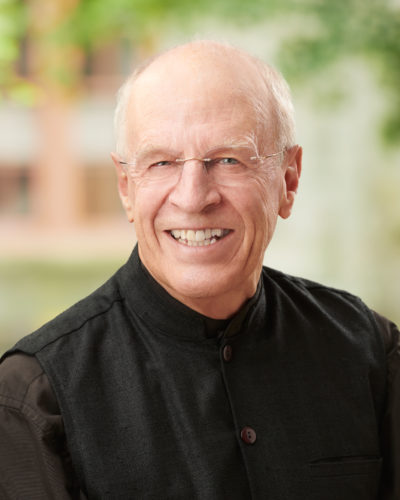
Kenwyn Smith, PhD
Research Interests
Changing race and gender dynamics in the corporate setting
The socio-political-cultural causes of homelessness in the USA
Incarcerated fathers
The development of a paradoxical theory of organizational life
MANNA: the birth and growth of an aids organization
Moving from the scarcity to the abundance paradigm
Interrupting contemporary non-pharmacological emergent addictions before they become full-blown pathologies
Applying truth and reconciliation commissions to organizations
Dr. Smith, Professor of Organizational Behavior, teaches leadership, group and intergroup dynamics, organizational politics, and change management to students in multiple graduate programs at Penn. During his years on this campus, Kenwyn directed The Center of Workplace Studies, served as Faculty Master of Ware College House, (where he was responsible 24/7 for the well-being of 500 Penn undergraduate students), and created Penn’s Graduate Program in Nonprofit Leadership, a partnership among multiple schools and currently housed in the School of Social Policy and Practice. He served as its inaugural director until 2012.
- Dr. Smith, an Australian citizen and holder of an American Green Card, is an international scholar in the fields of group and intergroup dynamics, organizational change and leadership. His research experience ranges from prisons to schools, from businesses to health care institutions, from state enterprises to social entrepreneurial activities, from oppressed black townships in South Africa to agencies creating sustainable livelihoods in rural India, from pharmaceuticals in Belgium to financial services in urban America, from the World Bank to a community in Philadelphia wrestling with the anguish of people living with HIV/AIDS.
- During his career Kenwyn has help found a number of volunteer-based, nonprofit organizations, has worked on six continents and has been involved in educating students from over 100 countries, both at Penn and in nations as diverse as China and India, Argentina and Australia.
- Internationally he is best known for four of his books, Paradoxes of Group Life (co-authored with David N. Berg), MANNA in the Wilderness of AIDS: Ten Lessons in Abundance , Yearning for Home in Troubled Times and Groups in Conflict: Prisons in Disguise.
- His most recent book, published in 2019, is titled The Abundance-Scarcity Paradox.
- Approaching the end of his years in academia, Professor Smith is currently working on three books to be titled The Heart of Leadership: Lessons from Lincoln, Gandhi and Mandela, Teamwork is Destroying Organizations, and Healing Economics.
Contact
Phone
fax: 215.573.2099
Address
3701 Locust Walk, Caster Building
Philadelphia, PA 19104-6214
About
Department(s)
Faculty | Retired FacultyRelated Links
Books
The Abundance-Scarcity Paradox
by Kenwyn K. Smith
Copyright 2019 by Kenwyn K. Smith
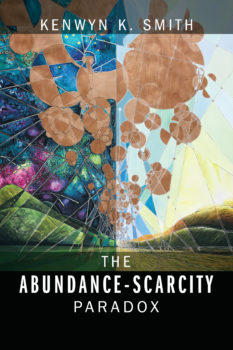
Humanity now recognizes we are partway through a transformational epoch that may be even more impactful than the Renaissance. A central feature of this reformation is discovering that all of life is predicated on abundance. Never before has the world been so wealthy. Yet mostly we still feel it is a struggle to survive, largely because our economic system is based on real or artificially created scarcities. The world order has been founded on the economics of scarcity, which is an insufficiently robust architectural edifice given present geopolitical complexities. It needs to be augmented by a financial infrastructure centered on abundance.
Before remaking economics, we need to develop a coherent and collective sense of abundance. Since we know a lot about scarcity, it seems wise to prepare for this transition by discovering how to describe everyday events using the principles of abundance. In the past, people have treated shortages as evidence of scarcity and excesses as indicators of abundance. Such notions are now being reconceptualized. Abundance is a way of seeing, a method of thinking, a form of emoting, and a manner of intuiting. So is scarcity. Abundance results from the integrating of seeming polarities and the balancing effectiveness of yin-yang-like rheostats.
This book shows how everyday events can be experienced as either awash with abundance or burdened by scarcity. Learning how to see the best and the worst of times with an abundance rather than a scarcity lens is the essence of this book.
Yearning for Home in Troubled Times
by Kenwyn K. Smith
Copyright 2003 by The Pilgrim Press
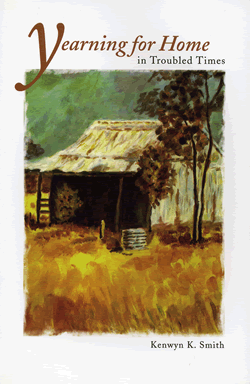
No matter how fast you run, Your shadow more than keeps up. Sometimes, it’s in front! But that shadow has been serving you! What hurts you, blesses you. Darkness is your candle. -Jelaluddin Rumi
Yearning for Home in Troubled Times is a book that addresses the issues that prevent us from feeling “at home” in our world. It examines this “homelessness” and shows us how to develop and build a sense of home.
Paradoxes of Group Life: Understanding Conflict, Paralysis, and Movement in Group Dynamics
by Kenwyn K. Smith & David N. Berg
Copyright 1987 by John Wiley & Sons, Inc.
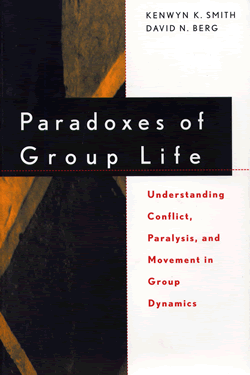
During the past decade, leaders have increasingly relied on self-managing work groups, multifunctional teams, and cross-national executive groups to create the organization of the future. Yet groups are not a panacea for organizational problems; conflicts between individuals or factions within a group often create seemingly contradictory situations that can prevent the group from reaching its goals.
In this groundbreaking classic, Kenwyn Smith and David Berg offer a revolutionary approach to understanding groups and overcoming the problems that often paralyze group members, the group as a whole, and relations among groups. They explore the hidden dynamics that can prevent a group from functioning effectively. And they show how an apparently paradoxical suggestion, for example, inviting a success oriented group to risk failure, or affirming the benefits of going nowhere to a group focused on moving ahead, can break action barriers, overcome conflicts, and improve group performance.
Smith and Berg offer a different way of thinking about groups that will open new avenues of inquiry for professors and students of group behavior, and they propose many innovative ideas that will prove valuable to consultants, trainers, therapists, and others who work with groups on a regular basis.
Groups In Conflict: Prisons in Disguise
by Kenwyn K. Smith
Copyright 1982 by Kendall/Hunt Publishing Company
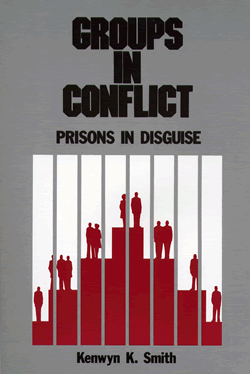
Freed to Be Fathers: Lessons From Men Doing Time
by Kenwyn K. Smith
Copyright 2003 by Kenwyn K. Smith
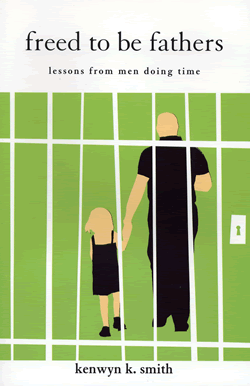
American men are at a crossroads: our world is filled with lost fathers and children with no meaningful relationship with their dads. We lament their plight, children and men alike….if we scratch the surface of virtually any man’s emotions it is clear that most makes feel overly yoked to the workplace and yearn for a new form of relatedness with their children.
-Kenwyn K. Smith
Based on interviews with men in Lawton Penitentiary, these moving and stunningly frank stories yield insights into the psychological, emotional, and social make-up of fathers-aspects that are normally kept hidden. “Over and over again,” says the author, “their stories mirror the melt-down of my own inner life as a man.”
Psychologists, social workers, corrections officers, reformers, criminologists, people engaged in prison ministries, and family members of incarcerated fathers will find this book extremely helpful, as will teachers and caretakers of children whose fathers have done time. But be warned, the stories of the twelve men presented here will tug at the heart.
The author offers two interludes for profound reflection: one on the history and transitional nature of our current understandings and practices of fathering, and a second that explores spirituality and its relationship to fathering.
Find Freed to Be Fathers: Lessons From Men Doing Time at Amazon.com
MANNA In the Wilderness: Ten Lessons in Abundance
by Kenwyn K. Smith
Copyright 2002 by Kenwyn K. Smith
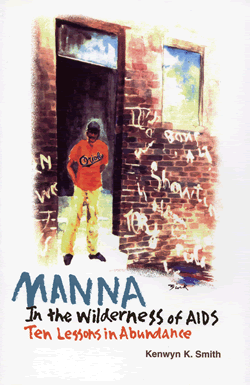
The poignant story of how a tenacious group of seven individuals from a Philadelphia church transformed a modest initiative to serve food to those with HIV/AIDS into a vibrant, interfaith, nonprofit organization–MANNA (Metropolitan AIDS Neighborhood Nutrition Alliance)–and in the process, revitalized themselves and their church and community.
MANNA embodies Philadelphia’s spirit of brotherly love.
-Ed Rendell, Mayor of Philadelphia, 1992-2000
This book tugs at the heart and lifts the spirit.
-Gloria Guard, Executive Director, People’s Emergency Center
Kenwyn was always our anchor. He’s the perfect person to tell our shared story and to convey the life-sustaining lessons learned by the MANNA community.
-Kay Keenze, Reid Reames, and Bob Prischak, MAANA co-founders
MANNA represents the best of the human spirit. This story of how a church basement ministry became on of the most impressive, vibrant, non-sectarian, volunteer organizations in America… A must read for those needing to know how to run non-profit organizations or wishing to understand theology in action.
-Ram Cnaan, Director, The Program for the Study of Organized Religion and Social Work, University of Pennsylvania
The Self in Social Inquiry: Researching Methods
by Kenwyn K. Smith & David N. Berg
Copyright 1985 by Sage Publications, Inc.
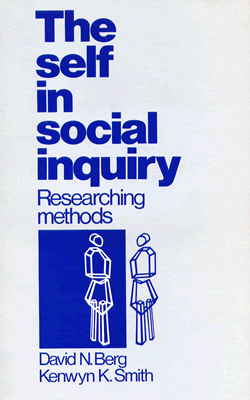
This book is an important step toward clarifying what we mean by clinical research and toward illuminating the complexities of the clinical relationship.
-Edgar H. Schein, Sloan School of Management, MIT
A valuable collection of essays and ideas that will prove of great use to researchers interested in exploring the relationships between researcher and researched.
-Gareth Morgan, York University
The book will be of considerable interest to those concerned with the problems and the potential of applied qualitative research… a (and) to organizational interventionists interested in qualitative methodology.
-Contemporary Psychology
Extraordinarily useful for PhD students in education. It provides a fresh, essential perspective that helps students tighten research designs through a careful examination of the too often neglected investigator variable.
-George I. Brown, University of California, Santa Barbara
This is one of the most stimulating collections of experiences with clinical thinking and methodology that I have seen in a long time. What gives it its innovativeness and instructiveness is that, with one or two exceptions, all of the contributors come from outside of the clinical area. My graduate students in clinical psychology found the book truly provocative.
-Seymour Sarason, Yale University